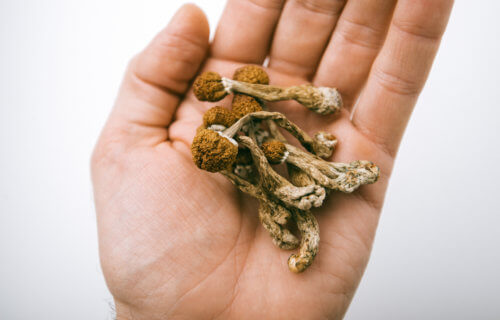NEW HAVEN, Conn. — Psychedelic drugs have become a more accepted alternative to mental health medications in recent years. One such drug that’s a common compound in “magic” mushrooms, psilocybin, has been looked at as a potential treatment for depression for years. Despite its success, it’s been unclear how it actually changes the brain for the better. Now, a new study finds psilocybin restores the brain connections which depression disrupts.
A team from Yale discovered that giving mice a single dose of psilocybin immediately increases the connections between neurons. These specialized cells transmit information and impulses to other nerves, muscles, and grands throughout the body.
“We not only saw a 10% increase in the number of neuronal connections, but also they were on average about 10% larger, so the connections were stronger as well,” says Yale’s Alex Kwan, associate professor of psychiatry and of neuroscience, in a university release.
Specifically, study authors discovered that compounds like psilocybin and the anesthetic ketamine increase the density of dendritic spines. These are small bumps on nerve cells that help boost the transmission of information between neurons. Previous studies have revealed that mental health conditions like chronic stress and depression lower the number of brain connections.
Psychedelics display long-lasting benefits
Kwan and first author Ling-Xiao Shao used laser-scanning microscope to view these dendritic spines in mice. The team tracked their changes while the animals took psilocybin for several days.
Their study finds the number and size of dendritic spines increased within a single day of taking their first dose of psilocybin. Moreover, the changes were still visible a month after their treatments. Researchers add that mice who were subjected to stress also showed improvements in their behavior after receiving the mushroom compound.
Historically, “magic mushrooms” are better known for their ability to trigger a psychedelic experience. They’ve been used as both a recreational drug and an ingredient in ceremonies among ancient indigenous populations.
“It was a real surprise to see such enduring changes from just one dose of psilocybin,” Kwan concludes. “These new connections may be the structural changes the brain uses to store new experiences.”
The findings appear in the journal Neuron.
